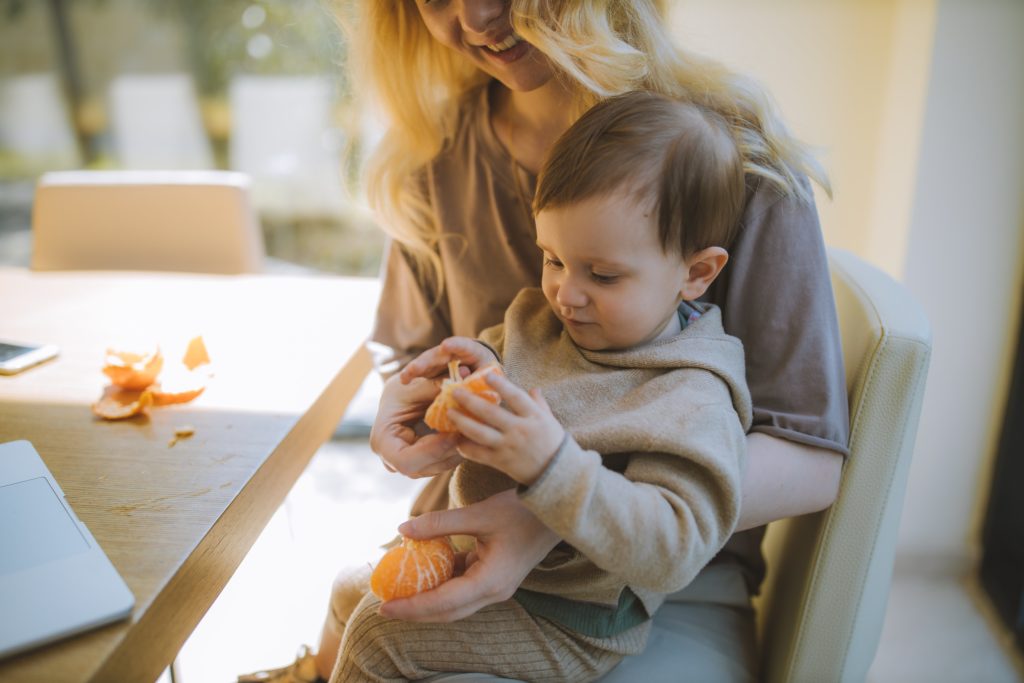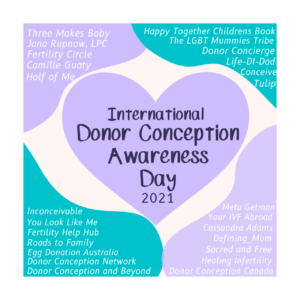Today is the first annual International Donor Conception Awareness Day, a day advocating for and celebrating donor conception. We are proud to be a founding member of this initiative, and hope it can spark meaningful conversation and progress for everyone involved in donor conception.
We spoke with International Donor Conception Awareness Day’s founder, fertility therapist Jana Rupnow, about the importance of raising awareness and advocacy for donor conception, and support for donors, children, and families. Jana shared her own family building story and background in a conversation with Donor Concierge, and spoke with us about the progress she hopes to see in the fertility field.
How do you think Donor Conception Awareness Day will impact donor-conceived families?
I’m hoping the day will help families begin talking about donor conception more openly. They often want to talk about it, but they just don’t know how to bring it up. They wonder when to start having the conversation.
I’m hoping the day will prompt families to bring up their story and learn that they aren’t alone! Having an internationally recognized awareness day legitimizes the issues of donor conception. Lifting the secrecy and shame surrounding donor conception is important to help grow healthy families.
One key focus of ours is providing resources and support for those pursuing egg donation. We really encourage people to embrace their journey and be open about donor conception, but we know it can be hard. How do you approach these conversations?
Openness starts with an attitude, and that can be fostered. Parents may have some emotional work to do before they are ready to talk to others about donor conception, but it’s so important to do so. The sooner the better so you can start talking with your children when they are young. One of the goals of this day is to give people permission to be more open, and overcome the secret practices of the past.
People today are much more open about donor conception, thanks in large part to prevalence of social media, but there is more work to do. Online communities are blossoming with conversations and connecting people across the world that are going through the same experience. It’s a great place for support for personal topics like infertility and donor conception.
We think it’s important to advocate for donor conceived children, and remember the impact these decisions will have on them. How do you think we can support people who were donor conceived?
We can support donor conceived individuals by understanding their unique experience and allowing them to process their emotions, no matter how uncomfortable they make parents feel. Donor conceived individuals may wonder about their donor, and they may be sad, angry, and confused by the donor’s motivations and absence of genetic information.
Late discovery is especially complicated for donor conceived individuals and includes processing difficult emotions. But it’s completely normal for individuals who grow up in a loving family that has been open with them about their conception, to feel these things too.
Complex feelings arise when people have the opportunity to meet their donor, and rejection is a common concern. Their parents don’t understand why they would be scared of rejection from someone who is a stranger, but again, it’s totally normal to feel this way. The key is to set boundaries and manage expectations ahead of time.
One important part of advocacy is using the right language. What language should we be using for the donor “parent” or the genetic “siblings”?
I use “genetic parent,” despite this not being the perfect fit. There are so many definitions of “parent” – social, biological, and otherwise, so it’s complicated. The important thing is what the child wants to call the donor. It may change over time, starting with “donor,” but evolving to a term your child prefers. In known donation, many people use the donor’s given name. It also depends on context: someone may not want to explain the specifics of their conception in every conversation, so the language will vary. It comes down to individual preference, while being respectful of other’s preferred terminology.
Some parents are afraid of not being enough for their child or their child considering their donor a “parent.” Do you have experience navigating those fears or obstacles?
Yes, this is one of most common fears parents share with me. A healthy parent-child attachment happens over time through repeated caring and emotional sharing and continues as a reciprocal relationship that is ever-evolving between a parent and child. Genetics are not required to form an attachment to a child, and the adoption community has lots of data to back this up.
Parents usually gain confidence as their child grows, but it’s also common to get stuck. Parents sometimes think that being open and having the first conception conversation is enough, but that is just the beginning.
My best advice is to seek training and gain skills to deal with new life stages and emotions. Having an ongoing resource is key, whether that’s therapy, workshops, books or other support options. I wrote Three Makes Baby – How to Parent Your Donor Conceived Child to be a long-term resource for families. Your child is going to grow and change, and these conversations will grow with them.
We know a lot of people in the fertility space are advocating for awareness and support for parents, children, donors, and more. How does IDCAD fit in?
My hope is that IDCAD will encourage organizations with aligned missions to come together and work to improve long-term resources for families. The solutions we have are lacking, and we need to come together to increase transparency and support across the board. The response I’ve received from IDCAD partners and fertility professionals has been really positive. I’m hopeful that together we will continue to make progress.
Thank you to Jana for spearheading this effort and discussing these issues with us. We firmly believe that it is our responsibility, and the responsibility of every fertility professional, to support and protect the people involved on all sides of fertility. We truly hope this day continues to spark progress for our field, and unites us further to push donor conception forward. If we all come together, we can make real change.



